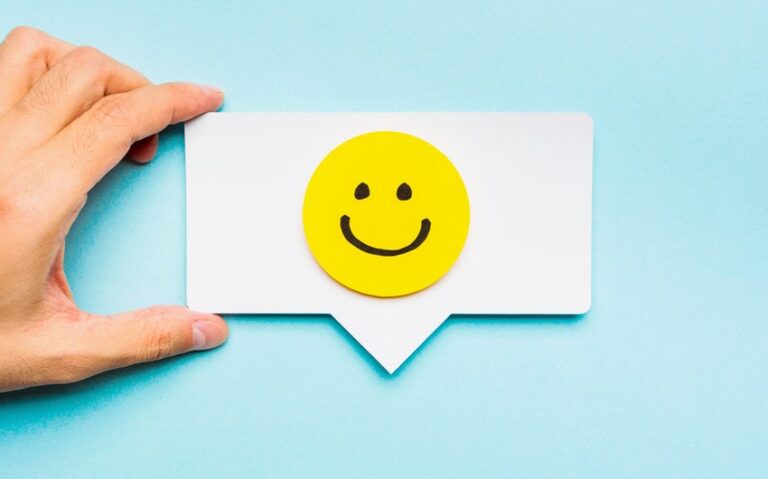The True KEKW Meaning in Text and Where It Came From
Have you ever come across the term KEKW while chatting online or watching a Twitch stream and wondered what it means? It’s one of those internet slang words that pop up in gaming and meme communities, often used to express laughter in a fun and exaggerated way.
The KEKW meaning in text comes from a viral meme featuring a Spanish comedian whose contagious laugh became an online sensation. Now, it’s a go-to for many when something is hilariously funny. Let’s dive into where this term came from and how you can use it in your conversations!
What Does KEKW Mean?
KEKW is an internet slang term used to indicate laughter, similar to how people use “LOL” (Laugh Out Loud) or “ROFL” (Rolling on the Floor Laughing). However, unlike these more common terms, KEKW has a playful and exaggerated tone, making it a favorite in gaming communities and meme culture.
When someone types KEKW in a chat, it usually means something is incredibly funny, and they are expressing laughter with a bit of flair. The term has become closely associated with online streaming platforms like Twitch, where it has been popularized by viewers and streamers alike to react to funny or unexpected moments during live gameplay or discussions.
Origins of KEKW
The origins of KEKW can be traced back to a viral meme featuring the Spanish comedian Juan Joya Borja, better known as El Risitas. In a famous interview clip from Spanish television, El Risitas tells a funny story while laughing uncontrollably in a high-pitched, wheezing way. His infectious laugh quickly became a meme, and his face has been used in various internet memes ever since.
The KEKW emote on Twitch is directly tied to this laugh, where the term KEK was already being used in gaming culture to represent laughter (similar to “LOL”). The W at the end was added to intensify the reaction, making KEKW an exaggerated version of KEK.
Interestingly, the term KEK itself originated from the Korean gaming community, where it was used as a translation of “LOL” in World of Warcraft. When non-Korean players saw it in the chat, it became a playful alternative to the familiar “LOL.” The combination of KEK with El Risitas’ famous laugh led to the creation of KEKW, solidifying its place in meme and gaming culture.
KEKW in Online Communities
KEKW has found its home in a variety of online communities, particularly in platforms like Twitch, Discord, and various gaming chats. On Twitch, viewers often use the KEKW emote to express laughter in response to a streamer’s mishap or funny moment during live streams. Over time, it has evolved into a universal reaction to anything amusing, from awkward in-game moments to hilarious commentary.
Streamers and content creators have embraced the use of KEKW, further popularizing it through frequent interactions with their audience. As a result, KEKW has become a staple in not just Twitch culture, but across online gaming communities and social media platforms.
Its versatility allows it to fit into a range of conversations, whether in response to memes, gaming highlights, or even in everyday text exchanges. Although it is most common in gaming circles, anyone familiar with meme culture can quickly pick up the use of KEKW to join in the fun.
This widespread usage is a testament to how internet slang and emotes like KEKW can transcend specific platforms and become an essential part of online communication. Whether you’re watching a live stream or chatting with friends online, using KEKW is a lighthearted way to show you’re laughing along.
How to Use KEKW in Conversations

Using KEKW in conversations is all about adding a touch of humor and exaggeration to express laughter, especially when something is unexpectedly funny. It’s commonly used in online chats, gaming communities, and social media platforms to replace traditional expressions like “LOL” or “LMAO.” Here’s how you can naturally integrate KEKW into your conversations:
1. Reacting to Something Funny
The most common way to use KEKW is as a reaction when something hilarious happens, whether it’s a funny comment, a meme, or a mishap in a game. For example, if you’re in a group chat and someone makes a joke, instead of saying “LOL,” you could respond with KEKW to show you’re laughing, especially if the joke caught you off guard.
Example:
- Friend 1: “I just accidentally walked into a wall during my Zoom call!”
- Friend 2: “KEKW!”
2. Exaggerating Your Reaction
Sometimes, you want to emphasize just how funny you find something. Since KEKW has a more playful and exaggerated tone than other laughter slang, it’s perfect for moments where you want to really lean into the humor. It conveys that something is so funny that you’re having an over-the-top reaction, similar to saying “I’m dying of laughter.”
Example:
- Friend: “My cat tried to jump and completely missed the couch!”
- You: “KEKW I can’t stop laughing!”
3. Group Chat and Social Media Posts
KEKW can also be used when responding to funny posts, memes, or comments on social media platforms like Twitter, Reddit, or Instagram. It has become a trendy way to show you’re in on the joke or part of a meme culture. It’s especially popular in meme-heavy communities where humor is exaggerated and larger-than-life reactions are the norm.
Example:
- Meme Post: “When you pretend to know what’s going on in a conversation but have no clue.”
- Comment: “KEKW this is me all the time!”
4. In Streaming or Gaming Chats
If you’re watching a Twitch stream or participating in an online gaming chat, KEKW is a quick way to respond to a funny in-game event, a joke from the streamer, or even a clumsy moment. Gamers and streamers often use KEKW to heighten their reactions to entertaining or chaotic situations, creating a shared sense of humor with their audience.
Example:
- Streamer: “I just walked into my own trap, what am I doing?!”
- Chat: “KEKW”
5. Teasing or Lighthearted Banter
In conversations where there’s friendly teasing or banter, you can use KEKW to signal that you’re not taking things too seriously. It’s a way of keeping the mood light and humorous, making sure everyone knows it’s all in good fun.
Example:
- Friend: “You still haven’t beaten that level? I thought you were good at this game!”
- You: “KEKW yeah, it’s tougher than it looks!”
6. Responding to Unexpected or Awkward Moments
Sometimes, things happen that are awkward or unexpected, and KEKW is a great way to diffuse the situation with humor. If someone makes a clumsy mistake or has a funny mishap, using KEKW shows that you’re laughing with them, not at them, and helps everyone move on with a light-hearted tone.
Example:
- Friend: “Oops, I just sent a message to the wrong group chat!”
- You: “KEKW, we’ve all been there!”
Other Similar Terms to KEKW
While KEKW has become a popular way to express laughter in online communities, it’s far from the only one. The internet is full of different terms and expressions that serve the same purpose—showing you’re laughing at something funny, often with varying degrees of intensity or style. Here are some similar terms that share the same spirit as KEKW:
1. LOL (Laugh Out Loud)
Perhaps the most well-known internet slang for laughter, LOL is used across the web to indicate that something is funny. Unlike KEKW, which is often used in more exaggerated or meme-heavy contexts, LOL has become a standard, almost neutral reaction in everyday online conversations. While still popular, its use is considered somewhat basic compared to newer terms like KEKW.
2. ROFL (Rolling on the Floor Laughing)
ROFL takes laughter to the next level, implying that something is so funny, you’re figuratively rolling on the floor laughing. This term is often used to show a higher level of amusement than LOL but still feels a bit outdated in today’s meme culture. KEKW fills a similar role but with more of a modern twist, especially in the gaming world.
3. LMAO (Laughing My A Off)**
LMAO is another well-established way to express laughter, often used when something is particularly funny. It carries a sense of heightened amusement, similar to KEKW, but KEKW has the added benefit of being tied to a specific meme and visual emote, giving it more context in certain online spaces.
4. LUL / LULW
LUL is a term that originated on Twitch and is often used similarly to KEKW. It features a laughing emote based on the face of John “TotalBiscuit” Bain, a popular game critic and YouTuber. LUL represents laughter in response to something funny during a stream, much like KEKW, but with less exaggerated intensity. LULW is an extension of LUL, often used to amplify the reaction, just as the W in KEKW serves to exaggerate the laughter.
5. Pog / PogChamp
While not directly related to laughter, Pog and PogChamp are often used in similar contexts to show excitement or approval. These terms are popular in gaming communities and convey a sense of hype or extreme emotion, much like KEKW does for laughter. Both terms have roots in the Twitch streaming culture and are often used alongside KEKW to react to funny or exciting moments.
6. XD
An older internet expression, XD is meant to represent a laughing face, with the X symbolizing squinted eyes and the D symbolizing a wide, open-mouthed smile. It’s not as commonly used as KEKW, but it still appears in some online circles, especially among those who were part of the early internet meme culture.
7. Haha
Sometimes, simple is best. Haha is a straightforward, text-based way to show you’re laughing. It lacks the meme connection of KEKW or the exaggeration of ROFL and LMAO, but it gets the job done in day-to-day conversations. However, it’s less fun and lacks the unique meme flavor that KEKW brings to the table.
Is KEKW Still Popular?

Image source: Pinterest
The popularity of KEKW has fluctuated over time, but it remains a staple in many online communities, particularly on platforms like Twitch and Discord. While some memes and slang phrases fade away quickly, KEKW has managed to maintain a strong presence, thanks in large part to its deep connection with the streaming world and the unique nature of its origin.
KEKW on Twitch
On Twitch, KEKW is still widely used by streamers and viewers alike. It’s often employed during humorous or chaotic moments in live streams, especially when something unexpected happens. Because KEKW is tied to an emote, it provides both a visual and textual element to the reaction, making it a versatile choice for expressing laughter. Popular streamers continue to use KEKW, ensuring its relevance in live chat and discussions.
Wider Meme and Gaming Culture
In gaming communities and meme culture, KEKW has become more than just a simple way to laugh—it’s a part of a larger internet language that includes other meme-based emotes and slang. This helps it stay relevant, as the meme world constantly evolves but tends to recycle and build on older jokes. Since KEKW originated from a viral meme, it’s continually referenced and keeps popping up in meme compilations, YouTube videos, and gaming highlights.
New Trends and Slang
However, like any internet slang, KEKW has faced competition from newer terms and expressions. The rise of new meme-based slang and emotes means that KEKW has to share the spotlight with other reactions. Terms like OMEGALUL or PepeLaugh have emerged and sometimes take the place of KEKW in certain circles. But for many, KEKW remains a beloved way to express exaggerated laughter, especially among long-time Twitch users and gamers.







